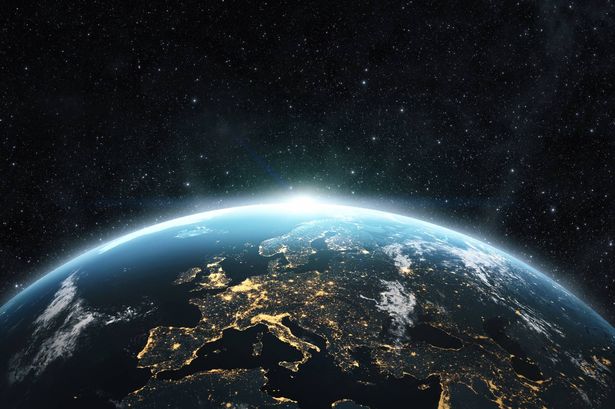Science
Astrophysicist Claims to Prove Existence of God Through Math

Dr. Willie Soon, an astrophysicist at the Harvard-Smithsonian Centre for Astrophysics, has made headlines by claiming to have demonstrated the existence of God through a mathematical equation. His assertion has sparked considerable discussion on social media, where users are debating the implications of his findings.
During an interview on The Tucker Carlson Network, Dr. Soon elaborated on his belief in the “fine-tuning argument.” This concept suggests that the universe’s physical conditions are so precisely balanced that they create an improbably conducive environment for life. According to Dr. Soon, these circumstances are too extraordinary to be mere coincidence, as reported by Mirror US.
The fine-tuning argument has its roots in a theory proposed by physicist Paul Dirac in 1963. Dirac contended that the mathematical elegance of nature’s principles hints at a supreme architect behind the universe. He noted, “It seems to be one of the fundamental features of nature that fundamental physical laws are described in terms of mathematical theory of great beauty and power.” Dirac posited that the intricate design of the universe suggests a higher intelligence at work.
In his recent remarks, Dr. Soon echoed Dirac’s sentiments, stating, “There are so many examples of the ever-present forces that allow us to illuminate our lives. God has given us this light, to follow the light and do the best that we can.” He further likened his argument to the classic analogy of a timepiece, suggesting that just as finding a complex clock implies the existence of a clockmaker, the complexity of the cosmos points to an intelligent creator.
While Dr. Soon’s perspective has intrigued many, it has also faced criticism. Opponents of the fine-tuning theory raise two primary counter-arguments. First, they note that our understanding of the universe is still limited. Human life, as we know it, is based on carbon, but life based on different elements could potentially exist elsewhere in the cosmos.
The second counter-argument revolves around probability. Detractors emphasize that highly unlikely events occur regularly, and thus the mere existence of our universe, regardless of its improbability, does not necessitate a divine explanation.
Dr. Soon’s claims bring a renewed focus to the intersection of science and faith, challenging traditional views on both fronts. As discussions continue, the debate over the relationship between mathematics, the universe, and the concept of a divine creator remains a compelling topic for both scientists and theologians alike.
-

 Health2 months ago
Health2 months agoNeurologist Warns Excessive Use of Supplements Can Harm Brain
-

 Health2 months ago
Health2 months agoFiona Phillips’ Husband Shares Heartfelt Update on Her Alzheimer’s Journey
-

 Science1 week ago
Science1 week agoBrian Cox Addresses Claims of Alien Probe in 3I/ATLAS Discovery
-

 Science5 days ago
Science5 days agoNASA Investigates Unusual Comet 3I/ATLAS; New Findings Emerge
-

 Science3 days ago
Science3 days agoScientists Examine 3I/ATLAS: Alien Artifact or Cosmic Oddity?
-

 Entertainment3 months ago
Entertainment3 months agoKerry Katona Discusses Future Baby Plans and Brian McFadden’s Wedding
-

 World2 months ago
World2 months agoCole Palmer’s Cryptic Message to Kobbie Mainoo Following Loan Talks
-

 Entertainment3 months ago
Entertainment3 months agoEmmerdale Faces Tension as Dylan and April’s Lives Hang in the Balance
-

 Entertainment3 months ago
Entertainment3 months agoLove Island Star Toni Laite’s Mother Expresses Disappointment Over Coupling Decision
-

 Entertainment2 months ago
Entertainment2 months agoMajor Cast Changes at Coronation Street: Exits and Returns in 2025
-

 World2 months ago
World2 months agoCoronation Street’s Asha Alahan Faces Heartbreaking Assault
-

 Entertainment2 weeks ago
Entertainment2 weeks agoStefan Dennis and Dianne Buswell Share Health Update on Strictly Come Dancing









